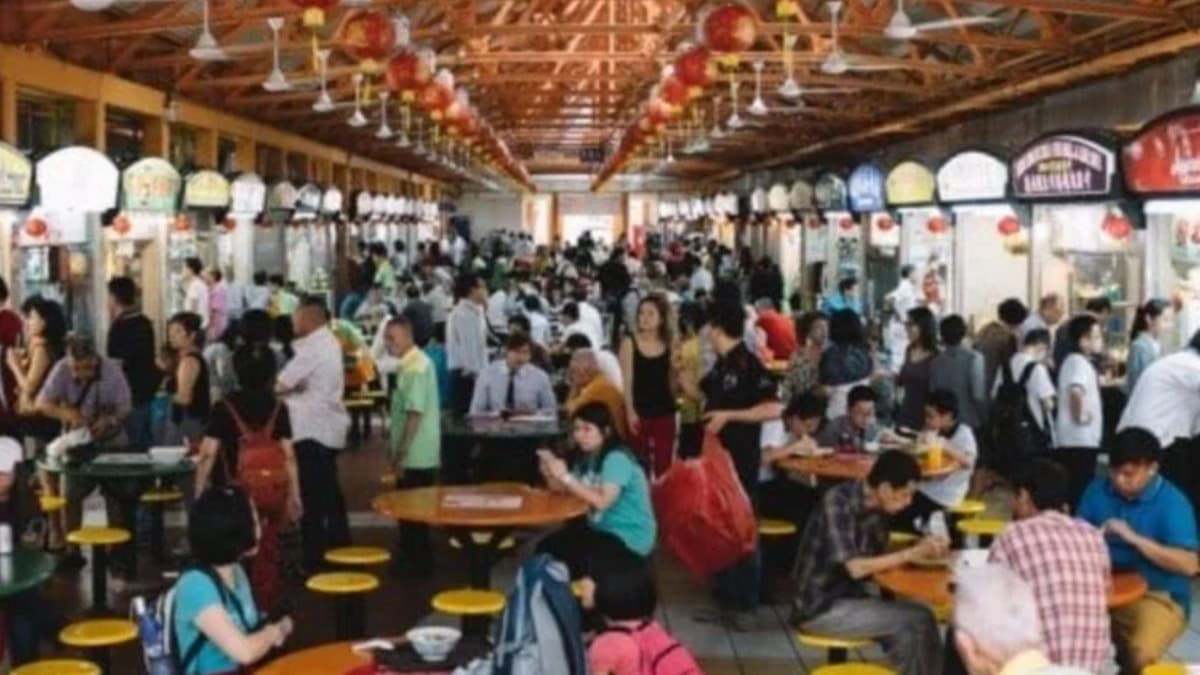About 170 LTVP holders employed as hawker assistants since rule relaxation, says Grace Fu
Roughly 170 Long-Term Visit Pass (LTVP) and LTVP+ holders have been employed as stall assistants across more than 120 hawker centres since hiring rules were eased on 1 January 2025, according to Minister for Sustainability and the Environment Grace Fu.

- About 170 LTVP and LTVP+ holders have joined the hawker workforce since January 2025.
- The policy allows LTVP holders with work rights to assist in NEA-managed hawker centres.
- NEA continues to enforce anti-subletting rules and promote succession through the Hawkers Succession Scheme.
In the first six months following the relaxation of hawker hiring rules, about 170 Long-Term Visit Pass (LTVP) and LTVP+ holders have been employed as stall assistants across more than 120 hawker centres in Singapore.
Minister for Sustainability and the Environment Grace Fu revealed the figure in a written reply to a Parliamentary question on 22 September 2025.
The question, filed by Ang Mo Kio GRC Member of Parliament Victor Lye, asked how many hawkers had utilised the new policy since its commencement on 1 January 2025. Lye also queried whether the uptake reflected a limited pool of eligible workers or low demand for such assistants.
Fu explained that under the revised hiring rules, hawker stallholders at centres managed by the National Environment Agency (NEA) or its appointed operators may employ LTVP and LTVP+ holders who possess Letters of Consent (LOC) or Pre-approved LOCs. This eligibility applies even in cases where the workers are not related to the stallholders.
She noted that the policy, which took effect at the start of 2025, remains in its early phase. “The NEA will continue monitoring the number of LTVP and LTVP+ holders employed in hawker centres,” Fu said.
The rule change was first announced in Parliament on 14 October 2024 by then-Senior Minister of State for Sustainability and the Environment Dr Koh Poh Koon. It was introduced to address manpower shortages in the hawker trade, a sector that has long faced difficulties in attracting and retaining workers.
Previously, only Singapore citizens and permanent residents were permitted to work as stall assistants in hawker centres managed by NEA. The revision aims to make it easier for hawkers to hire help, particularly among LTVP holders who already reside in Singapore and are eligible for work under approved conditions.
Fu highlighted that the policy benefits not only hawkers but also LTVP holders with approved work rights, including those with family connections to hawkers. “This relaxation allows these individuals to contribute meaningfully to sustaining Singapore’s hawker trade,” she said.
Lye also raised questions concerning subletting practices and the Hawkers Succession Scheme (HSS), both of which fall under NEA’s oversight.
In her reply, Fu reaffirmed NEA’s strict stance against subletting, stressing that stallholders are required to operate their stalls personally. Regular inspections are conducted to ensure compliance.
Between 2012 and 2024, around 230 stallholders received termination notices after prior warnings for failing to manage their stalls directly. In 2024 alone, NEA issued more than 230 Letters of Warning for non-compliance, while over 30 stall tenancies were terminated.
Fu said such enforcement ensures the integrity of Singapore’s hawker culture by preventing commercial exploitation of stall spaces that were originally intended for small, independent operators.
Turning to the Hawkers Succession Scheme, which was launched on 1 January 2022, Fu described it as an initiative aimed at preserving traditional recipes and practices by facilitating the transfer of skills and stall operations from veteran hawkers to new entrants.
“To date, six veteran hawkers have successfully completed transfers under the scheme, while four more are in progress,” she said. NEA is also working with two additional veteran hawkers to identify suitable successors.
Fu reiterated that the HSS is designed to safeguard Singapore’s intangible cultural heritage rather than act as a substitute for anti-subletting measures. “The scheme is about mentorship and continuity, not about ownership transfer for profit,” she added.
The HSS pairs experienced hawkers with aspiring successors through structured apprenticeships, culminating in a formal transfer of stall tenancy once skills and recipes have been adequately passed on.
Industry observers have noted that both the relaxation of hiring rules and the continuation of the succession programme reflect broader efforts to ensure the long-term sustainability of Singapore’s hawker trade, which is recognised by UNESCO as an element of Intangible Cultural Heritage of Humanity.
With an ageing population of hawkers and limited interest among younger Singaporeans, authorities have emphasised the need for policies that sustain both manpower supply and cultural transmission.
Fu’s ministry has indicated that it will continue monitoring how both the hiring relaxation and the HSS evolve, taking into account manpower trends, cost pressures, and the readiness of younger generations to take up the trade.







